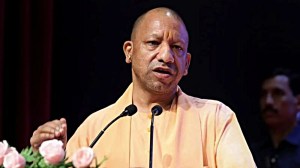Monsanto moves SC for stay on MRTPC order
US biotech major Monsanto has moved the Supreme Court challenging the order of the MRTPC directing the company to fix a reasonable price for sale of Bt cotton seeds to farmers, which was held to be exorbitantly high.

US biotech major Monsanto has moved the Supreme Court challenging the order of the MRTPC directing the company to fix a reasonable price for sale of Bt cotton seeds to farmers, which was held to be exorbitantly high.
Mahyco-Monsanto, the Indian arm of the company has sought a stay of the order directing it not to charge trait value of Rs 900 for a 450-gm packet of genetically modified Bt cotton seeds and to fix the reasonable trait value as charged by its parent company (Monsanto) in China.
Holding that the company was indulging in restrictive and monopolistic trade practices, the Commission had directed the company to fix the price within a month. The Andhra Pradesh government had approached the Monopolies and Restrictive Trade Practices Commission (MRTPC) alleging that the company was indulging in restrictive and monopolistic trade practices.
Among the several grounds taken in the appeal, Monsanto said the MRTPC should have stayed the proceedings as a petition by an NGO was pending before the Andhra Pradesh High Court.
Further, it contended that the Commission has wrongly held that the trait fee that was charged was not royalty. Monsanto was earlier charging Rs 1,250 (later reduced to Rs 900 during the trial) for its genetically modified Bt cotton seeds, which was opposed by the state government. The Commission had consented with the report filed by its investigative arm DGIR (Director General of Investigation and Registration), which had submitted that Monsanto was charging exorbitant price from the farmers for its seeds.
Showing the disparity in the price, the state government had said that Monsanto was charging just Rs 90 per kg from the farmers of China and almost the same amount in the US, Brazil and Australia.
Photos


- 01
- 02
- 03
- 04
- 05





























